Understanding the structural integrity of semi truck trailers is critical for manufacturers, fleet owners, and logistics specialists. Semi trailers are essential components of the freight transport industry, facilitating the movement of goods across vast distances. Their manufacturing process, materials used, and structural specifications significantly influence their performance and longevity. Here, we will comprehensively examine how thick and strong a semi truck trailer is and explore the various factors that contribute to their robust design.
The Importance of Structural Integrity in Semi Truck Trailers
1. Role of Semi Truck Trailers in Freight Transportation
Semi truck trailers, commonly known as semi trailers or simply trailers, are designed to carry cargo in conjunction with a tractor unit. They provide flexibility in loading and unloading, support heavy loads, and are adaptable to various cargo types, from food products to heavy machinery. Understanding the thickness and strength of these trailers is essential for ensuring they can withstand the rigors of transport while maintaining safety and compliance with industry regulations.

2. Key Factors Influencing Strength and Thickness
Numerous factors affect the strength and thickness of a semi truck trailer. These include:
- Material Properties: Common materials include steel, aluminum, and composite materials. Each presents unique characteristics in terms of strength, weight, and durability.
- Design Standards: Trailers must adhere to standards such as those set by the Federal Motor Carrier Safety Administration (FMCSA) in the United States.
- Load Capacity: Different trailers are engineered for specific load capacities, impacting the requirements for thickness and strength.
- Usage Conditions: The operating environment—whether on highways, rural roads, or rugged terrains—also dictates the necessary durability.
Materials Used in Semi Truck Trailer Construction
1. Steel
Steel is the most widely used material in semi truck trailers, particularly for flatbeds and box trailers. The specifications typically include:
- Thickness: Steel used in the main frame or structural components often ranges from 10 to 12 gauge, approximately 0.1345 to 0.1046 inches.
- Strength: Structural steel has a yield strength of around 36,000 to 50,000 psi, which provides the necessary resistance against deformation and fatigue during heavy loading.
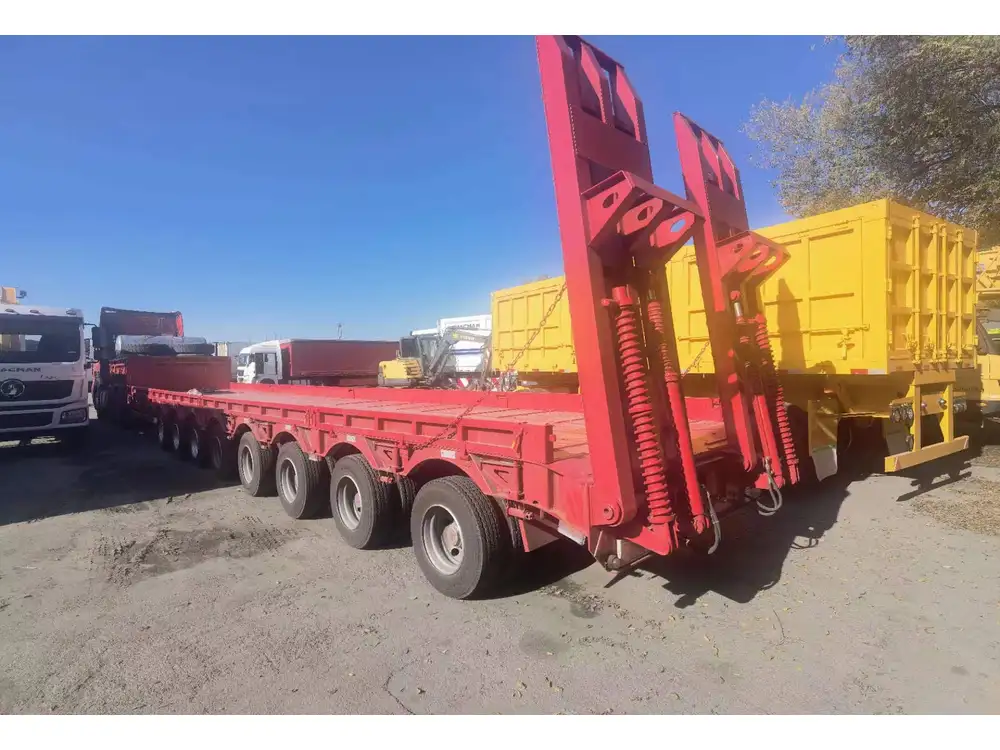
2. Aluminum
Aluminum trailers are favored for their lightweight properties, which can enhance fuel efficiency. However, they also exhibit substantial strength characteristics:
- Thickness: Aluminum thickness typically ranges from 1/8 inch to 1/4 inch, translating to 0.125 to 0.25 inches depending on the design.
- Strength: High-strength aluminum alloy trailers can achieve a tensile strength of about 70,000 psi, making them surprisingly robust despite their lighter weight.
3. Composite Materials
Emerging technologies have led to the use of composite materials, which combine various substances to create lightweight yet strong trailers. They often include:
- Characteristics: Composites can provide enhanced resistance to corrosion and damage while offering a similar strength-to-weight ratio as metals.
- Applications: Though still less common, composite trailers are increasingly being utilized for specialized applications like temperature-sensitive cargo due to their insulating properties.
Design Standards and Regulations
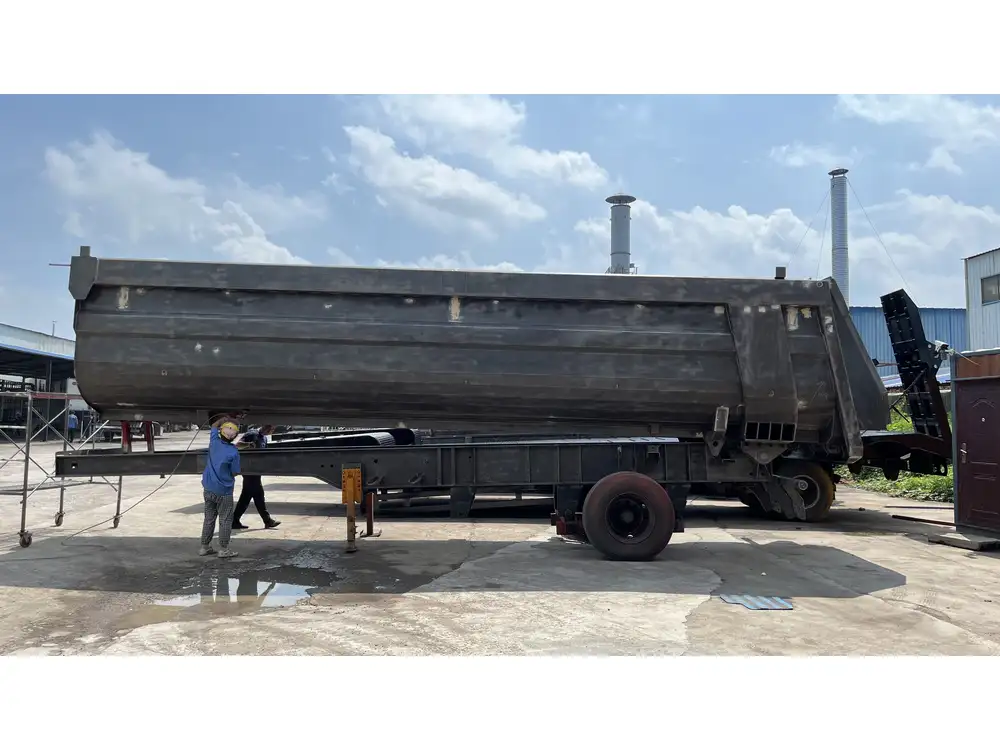
1. Compliance with Industry Standards
Manufacturers must ensure their trailers comply with local and federal regulations, including the following:
- FMCSA Regulations: The FMCSA sets forth regulations outlining the structural requirements for trailers to enhance safety and durability.
- Load Ratings: Trailers have designated load ratings, commonly expressed in gross vehicle weight (GVW) or payload capacity. Understanding these ratings helps in determining the necessary strength and dimensions of trailers.
2. Testing for Strength and Durability
Manufacturers perform rigorous testing to validate the strength of trailers before they hit the market. These tests may involve:
- Static Load Tests: Assessing how a trailer behaves under maximum load conditions.
- Fatigue Testing: Simulating long-term use to ensure the trailer does not succumb to wear prematurely.
- Crash Testing: Evaluating the trailer’s integrity during collision scenarios to comply with safety standards.
Structural Components and Their Durability
The structural framework of a semi truck trailer consists of various components, each contributing to overall strength and durability:
| Component | Typical Material | Common Thickness | Notes |
|---|---|---|---|
| Frame Rails | Steel/Aluminum | 10-12 gauge steel | Provides structural foundation for the trailer. |
| Crossmembers | Steel/Aluminum | 12-16 gauge steel | Reinforces the floor and enhances rigidity. |
| Walls | Steel/Aluminum | 14-16 gauge steel | Determines overall weight capacity and insulation. |
| Flooring | Plywood/Composite | 1-2 inches thick | Impacts load distribution and cargo protection. |
| Roofing | Metal Sheets | 1/8 inch | Protects the cargo from environmental impacts. |
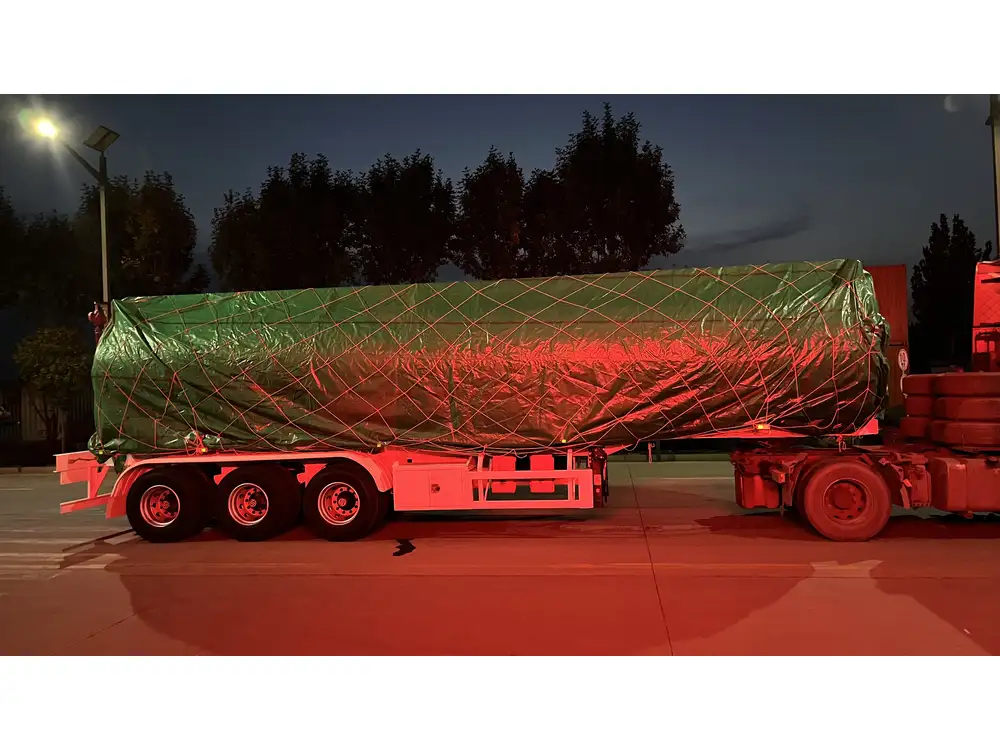
1. Frame Rails
The primary structure of the trailer, frame rails, are designed to support the load and endure the stress of travel. Typically made from high-strength steel or aluminum, they are a critical component.
2. Crossmembers
Strategically placed to enhance the trailer’s rigidity, crossmembers help distribute the load evenly across the frame and prevent bending or warping over time.
3. Flooring
The flooring often consists of high-density plywood or composite materials, providing a strong surface for cargo loading. Thickness usually measures between 1 to 2 inches, ensuring the ability to withstand substantial weights without compromising safety.
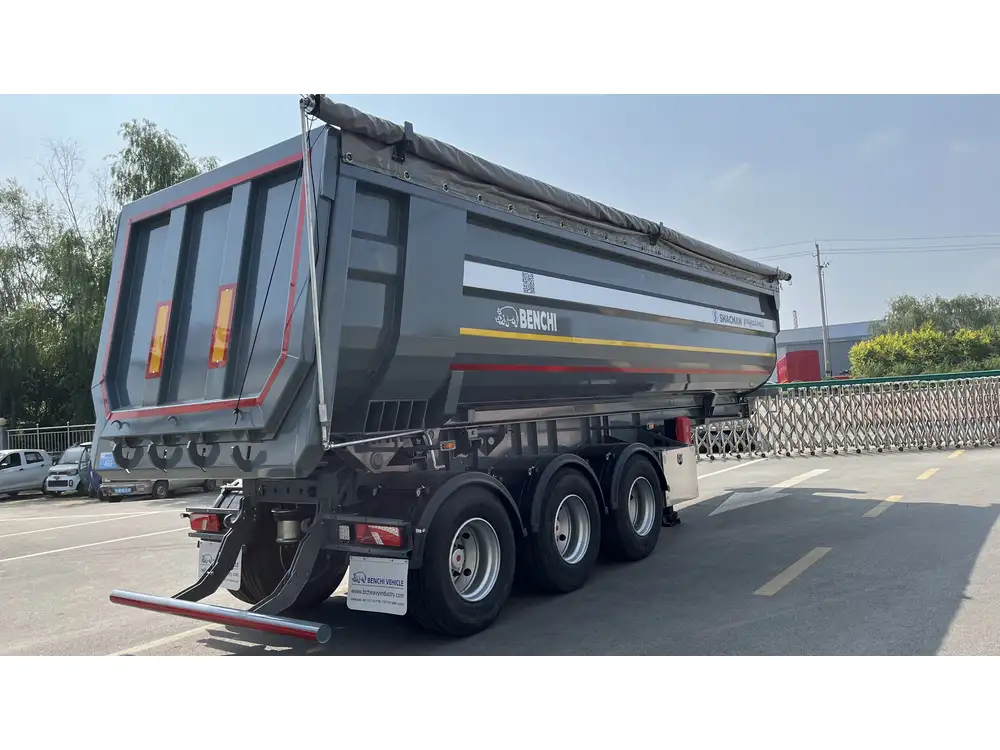
Comparison of Strength Across Different Trailer Types
Understanding the differences in structural integrity among various types of semi trailers can guide buyers in selecting the right trailer for their needs. Below is a comparison table of some common trailer types based on strength.
| Trailer Type | Common Use | Typical Load Capacity | Material Strength |
|---|---|---|---|
| Flatbed Trailer | General cargo | Up to 48,000 lbs | Steel (up to 50,000 psi) |
| Enclosed Trailer | Vehicles, equipment | Up to 26,000 lbs | Steel/Aluminum combinations |
| Reefer Trailer | Temperature-sensitive | Up to 45,000 lbs | Composite materials for insulation |
| Lowboy Trailer | Heavy machinery | Up to 80,000 lbs | High-strength steel for heavy loads |
1. Flatbed Trailers
Flatbed trailers possess a sturdy construction ideal for carrying heavy machinery, lumber, and other bulk goods. Their strength lies in the robust frame rails and the strategic reinforcement provided by crossmembers.
2. Enclosed Trailers
Enclosed trailers primarily provide security and protection for cargo. Their construction needs to be durable yet lightweight, often employing a combination of aluminum and steel for optimal performance.
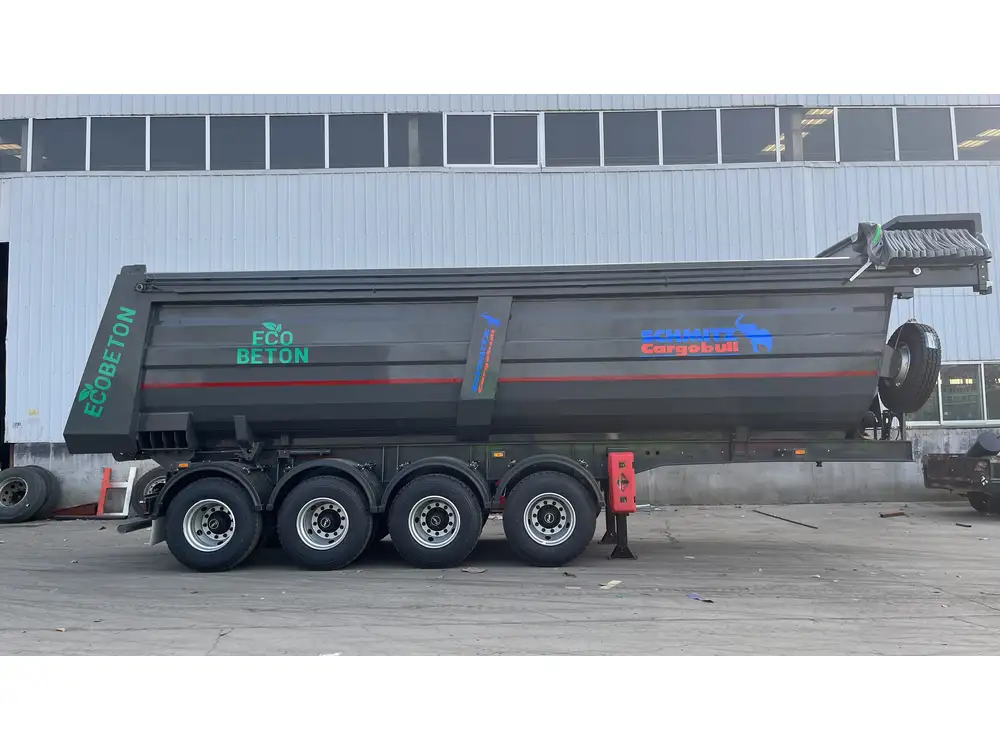
3. Reefer Trailers
Reefer trailers require specialized construction to maintain specific temperatures during transport. Their use of composite materials contributes to both strength and thermal efficiency.
4. Lowboy Trailers
Designed for transporting oversized loads, lowboy trailers are typically the strongest, made with high-strength steel frame constructions capable of handling extreme weight conditions.
Enhancing Strength with Advanced Techniques
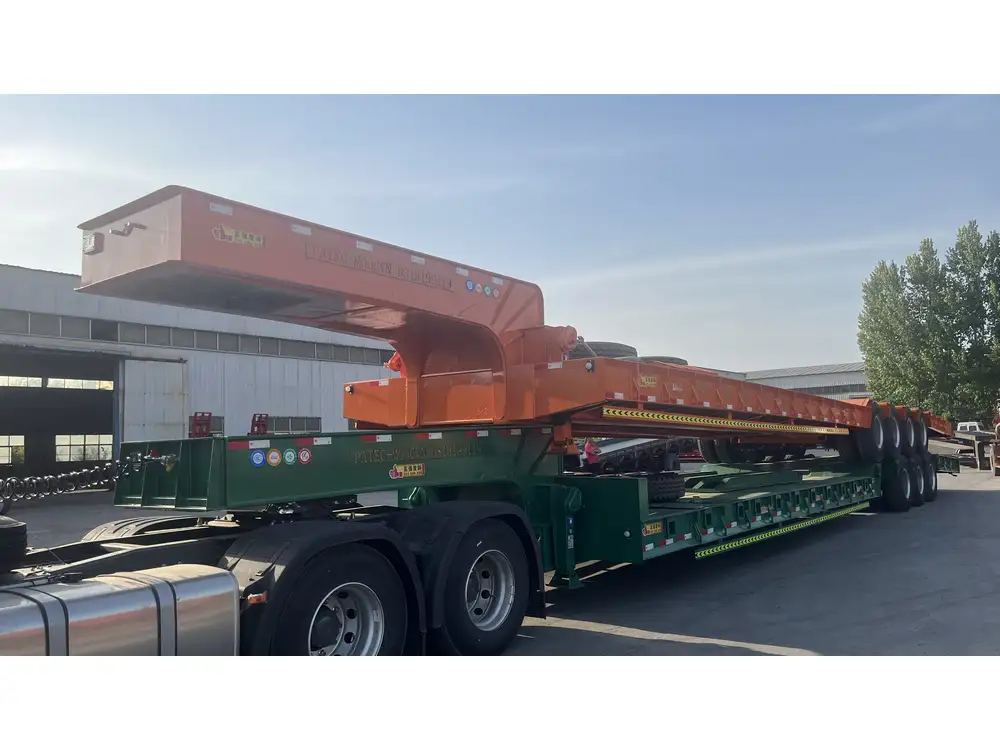
1. Welding Technologies
Through advanced welding techniques, manufacturers can enhance the strength of trailer components significantly. Techniques include:
- MIG Welding: Common in aluminum trailers, this method provides strong, clean joints.
- TIG Welding: Often used for steel components to achieve high precision and strength in weld seams.
2. Reinforcement Strategies
Several reinforcement strategies can further enhance trailer durability, such as:
- Using thicker gauge material in high-stress areas to better withstand the impact from loads.
- Adding reinforcements in critical joints, improving the overall structural rigidity and lifespan of the trailer.
Conclusion
In conclusion, understanding how thick and strong a semi truck trailer is involves a complex interplay of materials, design standards, and application requirements. By leveraging advanced materials such as steel, aluminum, and composites, along with proper reinforcement techniques and adherence to strict regulations, manufacturers can produce trailers that meet diverse hauling needs while ensuring safety and efficiency.
The durability and performance of semi truck trailers stem from thoughtful engineering and rigorous testing. As industries continue to innovate, the future of trailer design will likely see even greater advancements in materials and construction techniques, which will redefine the standards of strength and thickness in semi truck trailers.
For individuals or businesses involved in transporting goods, selecting the right semi truck trailer with the appropriate thickness and strength can significantly impact operational efficiency and safety.



